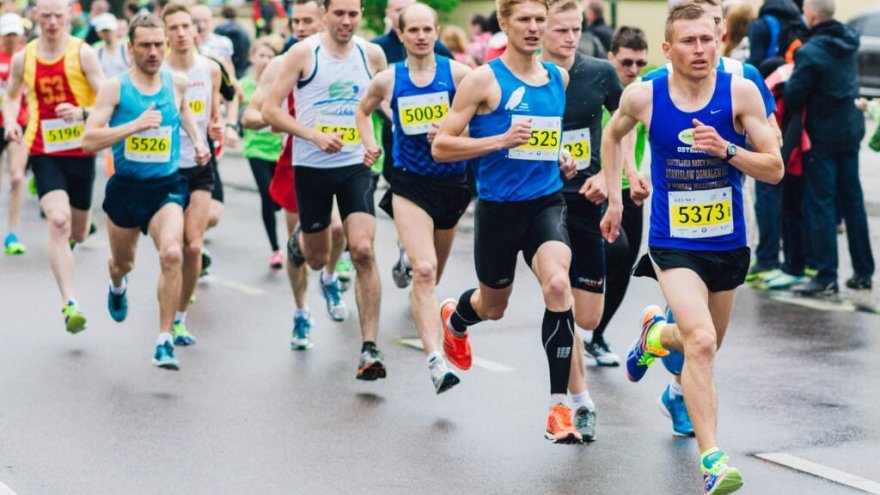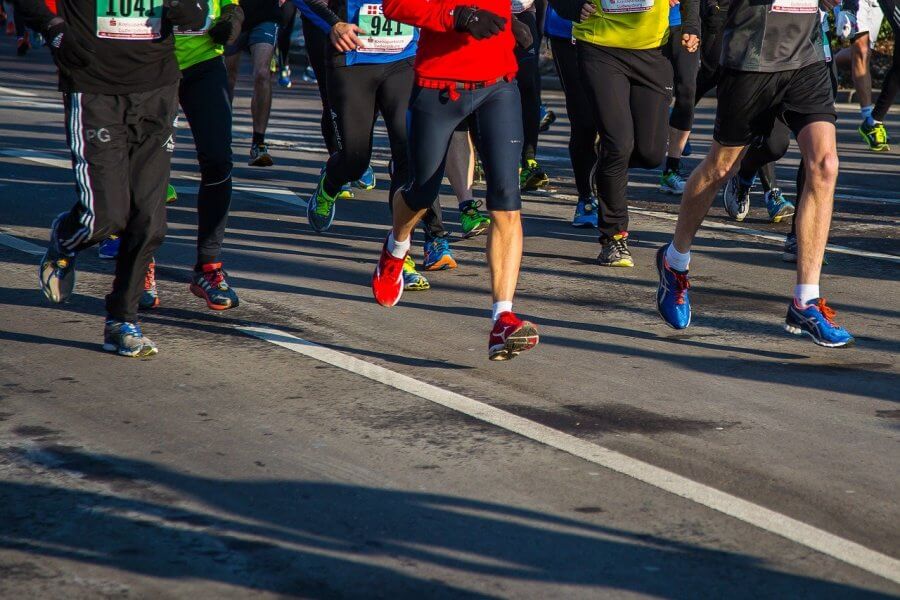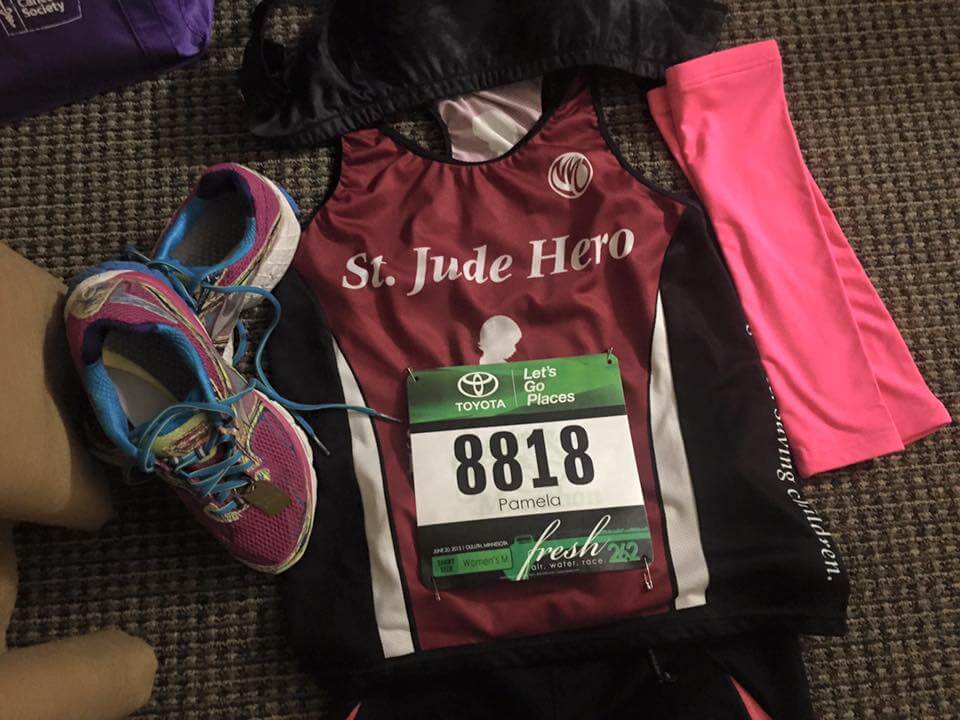Should You Run The Day Before A Race?

You’ve done everything right to lead up to your big moment: race day. As they say, the hay is in the barn. Some athletes, in particular those new to running, think that they may be best off taking absolute rest the entire week leading up to a race. This is not necessary and can actually be counterproductive.
There are a few things that are key to a successful race.
- Fresh Legs: You want fresh legs leading up to your rest. This may mean a day or two off, but for sure means that you are doing lower mileage and less hard running. This is accomplished through your taper.
- Nutrition: Fuel your body properly in the week and days leading up to the big race!
- Adequate Hydration: Taking in enough water is super important as you get ready for your race. This is not just about race day. You need to be hydrating properly all the time.
- Proper Rest: Getting enough sleep and rest in the days before your race helps prime the pump for a good performance. Many of us don’t sleep well the night before a race, so being mindful of sleep in the days leading up is important.
How Many Days Of Rest Before A Race?
Different factors weigh in when trying to decide how many days of rest before your race. What distance are you racing? Are you traveling to the race? Will you be trapped in a car or plane for hours getting to your destination? How conditioned are you for the race?
You are given two complete rest days before racing, looking at the most popular training plans for the marathon or half-marathons, such as Hal Higdon or Galloway Running.

Some people really benefit from a gentle jog the day before race day. This is especially true if you have traveled for any distance and length of time to get to the race venue.
Especially for people cramped in an airplane or car heading to a race, lacing up and going for a brief and easy shakeout run the day before you race can be highly beneficial. In addition, these shakeout runs can help with pre-race jitters and are a wonderful way to explore the city you are racing in!
When asked by new runners if they should run the day before a race, I always answer, “if you feel the need to, make it short, sweet, and super easy.”
What Should You Do The Day Before A Race?
The day before your big event, there are some things to do to set your body up for success.
Packet Pickup: Most races offer packet pickup the day prior. If your event does, take care of this to take one thing off your plate on race day.
Eat Well: Nutrition is always important, but never more so than the day before a race. I like to eat my bigger, carb-loaded meal earlier in the day and then have a lighter meal before bed. This works for me. It would help if you practiced some meals before long runs to ensure your stomach tolerates them well.
Hydration: Take in plenty of water the day before to help your body out on race day.
Take It Easy: This is not the day to walk all over a new city if you hope to do well. Sure, a short shakeout run, gentle jog, or brisk walk is helpful. Go ahead and do that. But don’t try to get those 10,000 steps in.
Early to Bed: Even though you may not sleep well, try to get to bed early.
Prepare Race Gear: The last thing you want is to realize you are missing something on race morning. Layout all of your gear. Pin your bib on. Leave nothing to chance.
Race Fuel: Get your race day fuel ready and in your pockets or fuel belt.
What To Do The Morning Of A Race?
I like to give myself plenty of time on race morning. I get up anywhere from 2 – 2 1/2 hours before the race start, longer if I have to catch a shuttle or drive to the race. The first thing I do on race morning is to drink a little coffee. Not too much… just enough to help me peel my eyes open.
Some runners do a shakeout run immediately after rolling out of bed. This is a 10-20 minute super easy, light jog to get the body moving. I have not yet done this but have recently read about the benefits.
Breakfast for me is usually a bowl of oatmeal and a banana, washed down with water and maybe a few sips more of coffee. Sometimes I take a quick shower to help open my eyes more.

Hopefully, between the coffee and the oatmeal, I am then ready to poop. Any runner can tell you how important a race morning poop is. The last thing any of us wants on the course is a code brown!
Typically this is about when I am ready to head to the start, whether I am driving, walking, or jumping on a shuttle. I do one last check to be sure I have everything I absolutely need and head out.
My quick check items include key (to car or hotel room), fuel belt (with water and source of energy), race bib (hopefully pinned on my shirt already!), a gear check bag if I am taking one, phone and headphones.
Using gear check, I put a dry shirt and sliders inside the bag, alongside a snack. I am gluten intolerant so finding food I can eat post-race is sometimes challenging.
What Works For Me?
When my racing buddy Carla Hayes and I drove from Wisconsin to Pennsylvania, we most definitely needed to work the kinks out once we got there.
After checking in to our hotel, we laced up our sneaks and headed out on foot. We jogged a little, walked a little, and took in the sights. The beautiful water fountain is one of the places we explored.

This was a fantastic way to get a little shakeout in a while, also seeing some things in Pittsburgh. The following day when we raced our half marathon, we knew our legs were in the best shape we could have put them into.
After so many hours locked in the car, pure rest would not have benefited us as much as this time exploring did.
Listen To Your Body’s Cues
It really is up to you to choose to run in a couple of days leading up to your race. When I am racing a 10K or shorter, I typically only take one day of complete rest. If I am racing longer, I may take two days off.
However, if I am traveling any distance to a race, I typically do some shakeout run or brisk walk after arriving at my destination. I find that helps me tremendously.
The key is to listen to the cues your body is sending you!
Latest Articles
 Is Running on a Treadmill Easier Than Running Outside?Runners have their own preferences, whether it is treadmill running, running outside on the road, or exploring trails. So...
Is Running on a Treadmill Easier Than Running Outside?Runners have their own preferences, whether it is treadmill running, running outside on the road, or exploring trails. So... Is It OK to Use Trail Running Shoes on the Road?While trail running shoes can be used on roads, especially in situations where a runner encounters mixed terrains or pref...
Is It OK to Use Trail Running Shoes on the Road?While trail running shoes can be used on roads, especially in situations where a runner encounters mixed terrains or pref... How to Fix Sore Quads After Running?Rest, ice, gentle stretching, and over-the-counter pain relievers can help soothe sore quads after running. Also, ensure ...
How to Fix Sore Quads After Running?Rest, ice, gentle stretching, and over-the-counter pain relievers can help soothe sore quads after running. Also, ensure ... 10 Fruits With The Most Electrolytes to Replace Sports DrinksThese fruits are high in electrolytes such as potassium, magnesium, and calcium, essential for hydration, muscle function...
10 Fruits With The Most Electrolytes to Replace Sports DrinksThese fruits are high in electrolytes such as potassium, magnesium, and calcium, essential for hydration, muscle function...

